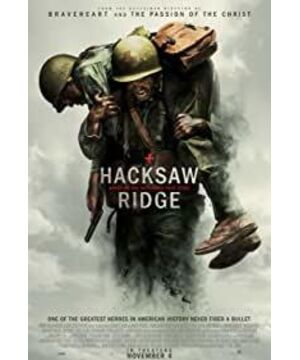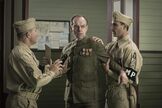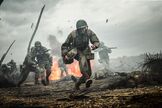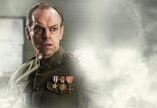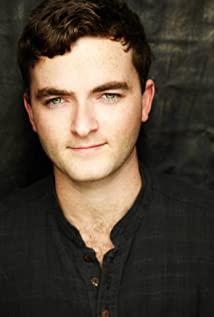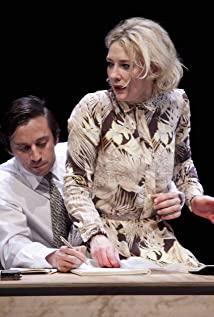This is a story that we can't be more familiar with: young people from a small town rushed to the battlefield with enthusiasm and grew up in the war. Mel Gibson used investment from his hometown to shoot a pure American theme movie after the "anti-Semitism" storm was banned by Hollywood. The soldiers sneered and sneered). Of course, what remains unchanged is a lot of bloody and cruel physical suffering. Only by transcending physical suffering can the story of faith be completed. In a sense, Mel Gibson’s violence is just a means to convey power through rhetoric at the level of rhetoric, if the truth constructed by violence at the aesthetic level is an objective attribute of truth. , Then violence in the rhetorical sense can only be structured as the symbol itself. The beginning of "Blood Battle of Hacksaw Ridge" is the fire dragon fired by the flamethrower. This flashback just ended when Dawes was injured and carried on a stretcher, forming a closed circle from suffering to sublimation and the weak to the hero. The cold weapons in "Brave Heart", the wooden nails and crosses in "The Passion of the Christ", and the poisoned arrows in "Revelation" are freedom, fraternity and dignity supporting Wallace, Jesus and Mayan warriors to overcome all these. Dawes in "Blood Battle in Hacksaw Ridge" chose not to take a gun. His hands could only redeem and could not kill. His insistence on faith allowed him to surpass the cruelty of war itself. In the film, the director simply regards Dawes' father as the antithesis of his beliefs. His father, who was troubled by the shadow of war, was drinking and domestic violence, which made Dawes spend his childhood in fear. Dawes’ choice between “biological father” and “heavenly father” has not experienced too many dramatic moments. He can use responsibility, patriotic secular values and biological father’s reconciliation, and he can also use strict creed and prayer to accept the heavenly father’s bless. When he was imprisoned for disobeying the orders of his superiors, the window frame above the room glowed like a cross. Dawes' struggle was really like the last moment before Jesus was tortured, and the Virgin Mary would come to comfort him.
Hacksaw Ridge is only the final stage of the entire Okinawa campaign. When Japan's defeat in 1945 was irreversible, the US military's war on Okinawa was related to whether it could invade Japan's homeland as soon as possible. In the case of the victory of the early naval battle, the Japanese "Kamikaze" task force caused staged difficulties to the US military in the air, but the US military quickly relied on the Mitchell aircraft carrier group to regain control of the situation, and at this time only the southern part of Okinawa was left. The hacksaw ridge is out. Because the Japanese army lost the initiative in the air and sea, they could only use the special terrain of Okinawa as ground defense. The southern part of Okinawa is no longer a dense jungle and dense fishing villages, but a barren land covered with limestone. The Japanese army used limestone to build dense underground tunnels, just like they did on Iwo Jima. The U.S. military is obviously overconfident. While they have the advantages of sea and air, the three land-based marine divisions will also have an advantage over the defeat of the Japanese army. But the truth is cruel. The offensives of the two US Marine Divisions were disintegrated one after another. Just like the scene that Dawes faced when he first arrived in Okinawa in "Blood War Hacksaw Ridge", they felt the cruelty of war for the first time. "Blood Battle of Hacksaw Ridge" is a broken movie. The flashback in the first half of it seems too long, like a remake of "Pearl Harbor". Eastwood's "Letters from Iwo Jima" clearly deals with life in wartime. More clever. Mention "Letters from Iwo Jima" and one can think of the "perspective" question often mentioned in war movies. Is it the perspective of the victorious party or the perspective of the defeated country? Eastwood’s practice in "Letters from Iwo Jima" and "Flags of Fathers" is obviously unsatisfactory, because we found that the Japanese in them are still constructed on a certain imaginary picture, which is similar to Lu Chuan. The mistakes made in "Nanjing, Nanjing" are the same. He was brainwashed by the emperor's thoughts to the remaining love for his family. This kind of love defeated this seemingly strong faith, but can it really be the case? From the perspective of Mel Gibson's complete victor, the name of any Japanese, including the Japanese commander Ujima, does not even appear in the film. We see Dawes treating the wounds for the Japanese soldiers. This is not so much a station. The humanitarianism of the above is not as good as the manifestation of Dawes’ Christian faith. In a set of cross-montages that appeared at the end of the film, Daus was saved with the Bible in his hand, but Udo had to break his stomach and commit suicide. Christianity defeated the spirit of Bushido, both physically and spiritually.
Mel Gibson's handling of the war scenes is obviously "old school", although there is no lack of blood and violence that he likes. Mel Gibson amplifies the "suddenness", you don't know when and where the bullets appear, and the characters being hit are all sudden. The war in Hacksaw Ridge is back to the traditional Hollywood narrative, just like Spielberg did. The footage and editing are as neat as a textbook. Recall that in recent years the theme of the Iraq war, most of the war scenes were completed with a handheld follow-up shot. The audience’s perspective and the soldier’s perspective overlap, and there is heavy breathing in the soundtrack. We all feel their fears. . In De Palma's "Excerpts and Revisions", the director even installed a camera lens on the soldier's helmet, and then edited these video clips into a movie. However, there are very few overlapping shots in "Blood Battle of Hacksaw Ridge", and a few appeared in the second attack but it was also a flash. In the film, Dawes and his comrades teamed up to destroy the sniper. It is also standard American humor, which is almost standard in all Hollywood war movies. Mel Gibson used a conservative way to photograph the war scenes, but it is a more powerful foil to Dawes's traditional values. The brutal killing scenes in the film are also interspersed with poetic slow-motion and close-ups, which makes people think of Malik's "Thin Red Line", Mel Gibson's poetry is about the boots over the corpse. , The rat-ravaged and fearful eyes, not the trees, flowers and poetry itself. This is not so much Tehan’s tenderness as it is another release of war violence. The flamethrower has a great effect on destroying the strong defensive positions of the Japanese army in the final battle of Hacksaw Ridge. Its huge flame is devouring life and evil. Just like Sodom, the sin city burned down in the Bible, the glory of God will finally come here.
In addition to the "perspective", another question worth pondering is whether "Blood War Hacksaw Ridge" is a "belligerent movie" or an "anti-war movie"? Mel Gibson’s previous works have conveyed the attitude of the necessity of war. Although war is cruel, freedom cannot be obtained without war. Dawes refusal to take the gun seems to be the victory of the anti-war theme, but it is undeniable that the foundation or foundation of Dawes faith is based on violence. Everyone has the freedom to have their own beliefs. Under the proliferation of neoliberalism today, people increasingly feel that this is a self-centered trap. Is Daus holding the "Bible" and Niu Dao holding a short knife both the embodiment of a certain dignity and faith? Hollywood movies often tell us that killing in war is necessary because it is to protect our loved ones and the values we hold to. The narrative in this mode must use the power of emotion if it wants to escape the criticism of the "belligerent movie". So we see the "Saving Private Ryan" sacrifices the lives of comrades to save the family's only remaining son and the emotional main line of the first half of "Blood War Hacksaw Ridge", but the sacrifice of individual families in "Blood War Hacksaw Ridge" and national interests Compared with the former, the contradiction has been diluted a lot, and the ideological self-salvation has been further manifested. In "Letters from Iwo Jima," the unreasonably barbaric and uncivilized phenomenon of a small part of the Japanese army may have exposed Eastwood's own superior posture as an American, but the essence still does not overflow the boundary of reality. Niu Dao and his army in "Saw Ridge" only received a fragmented "show", like a puppet without flesh and blood. In the war scene, the audience also felt that the Japanese would never be able to kill the Japanese, but the American army had just been killed At the beginning, it fell in pieces. The actual situation is that the total losses of the Japanese and US troops in the Okinawa Battle were 11:5, and the US troops died of 12,500. This was the highest combat loss of the US military in the Pacific War.
If Ushima and his army do not give up their defensive strategy (the Japanese think it is shameful to only adopt a defensive strategy in war), it may be more difficult for the U.S. military to break through the hacksaw ridge. In the movie, the Japanese soldiers wander around like ghosts and kill people. Dawes’ dreams reflect his fear of death within the framework of realism, but he has never doubted faith because of fear. The 75 lives saved all testify to Dawe’s adherence to faith. Mel Gibson’s movies always end with the male protagonist finally coexisting in harmony with the world of faith, no matter how bloody and cold the struggle is, these are enough to suffocate the audience or even avoid it, but in the end he will still stretch out his hands. Come to embrace the real world. As far as the war itself is concerned, "Blood War Hacksaw Ridge" does not give more reflection on the war beyond personal salvation when presenting the cruel killings. The line of enemy and ours is clear, and the protagonist's cruel killings are also guided by the premise of "immortality". It has become the delirium of male heroism in the age of peace, but peace cannot be maintained by faith alone, and the criticism of war cannot be limited to the level of "injustice". Any praise of the goodness of human nature cannot ignore the other side of evil. , Otherwise it would be nothing more than an illusion that Dawes saw the enlightening light after leaving the dark tunnel of Hacksaw Ridge.
View more about Hacksaw Ridge reviews


